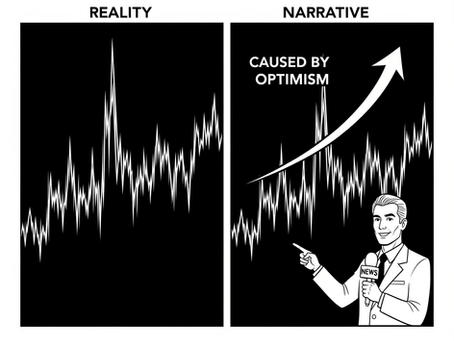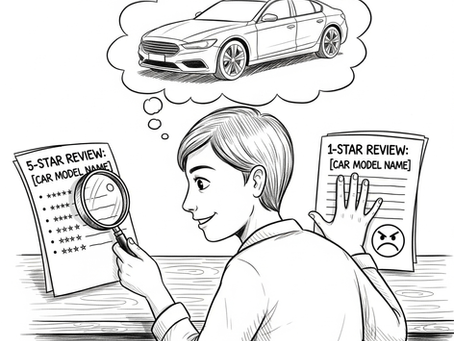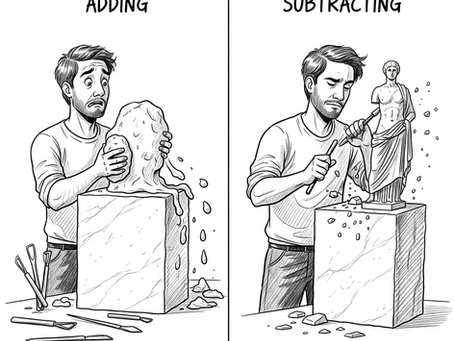top of page


Inversion. The Mental Model of Thinking Backward to Win Forward
This article provides a practical way for you to use Inversion . We will look at its ancient roots, its modern use in business, and the...
Aug 166 min read


The Framing Effect. How a Single Word Changes Your Mind
A cognitive bias where people decide on options based on whether the options are presented with positive or negative connotations: the...
Aug 162 min read


The Anchoring Effect. Negotiate Your Salary Like an Expert
You received the job offer. For a moment, there is a rush of excitement and validation, but it vanishes the instant you see the number....
Aug 168 min read


Overcoming Loss Aversion for Smarter Investing
At its core, Loss Aversion is the observation that for human beings, the emotional impact of a loss is significantly more intense than...
Aug 166 min read


The Narrative Fallacy. Why we Simplify a Complicated World
The human tendency to create stories to explain past events, oversimplifying causality and making them seem more predictable than they...
Aug 162 min read


How Business Pre-Mortem Planning can Solve Survivorship Bias
Your team is preparing to launch a new initiative. You have studied the market leaders, reverse-engineered their strategies, and built a...
Aug 166 min read


Confirmation Bias. Why are we so stubborn?
The universal human tendency to search for, interpret, favor, and recall information in a way that confirms or supports one's...
Aug 162 min read


Via Negativa. How to Improve Your Life by Subtracting
In many domains, improvement comes not from seeking the good, but from eliminating the bad. You draft a long, complicated email full of...
Aug 162 min read


Antifragility. Why Resilience is Not Good Enough
Antifragility is the quality of systems that gain strength, capability, and resilience as a result of stressors, shocks, or failures. A...
Aug 162 min read


The Black Swan Theory. Risk Management for Black Swan Events
For centuries, the phrase a Black Swan was a common expression for an impossibility––a metaphor for a belief held with absolute certainty. This was based on what seemed like unassailable empirical evidence: every swan ever observed by Europeans had been white. Then, in 1697, Dutch explorers witnessed black swans in Australia for the first time. In an instant, a single observation invalidated a belief system built on millennia of confirmatory data. This historical discovery
Aug 167 min read


Second-Order Thinking. How to Think Beyond Immediate Consequences
Second-order thinking is deep and complex. It considers the longer-term consequences of the initial effects. A manager at an ice cream...
Aug 162 min read


Minimal Viable Strategy & The Art of Strategic Simplicity
In late 2001, the corporate world watched as Enron ––an energy behemoth with reported revenues exceeding $100 billion––filed for what was then the largest bankruptcy in U.S. history. The immediate story was one of staggering fraud, although beneath the headlines lay a more instructive failure: Enron was a casualty of its own weaponised complexity. The company’s strategy was intentionally labyrinthine, built on a web of over 3,500 partnerships designed to conceal massive debt
Aug 1510 min read


Define Your Strengths and Weaknesses through Your Circle of Competence
In the 1990s, Harley-Davidson ––a brand synonymous with rugged individualism, powerful motorcycles, and the open road––made a strategic...
Aug 1511 min read


Your Business Plan is a Lie. Use Dynamic Strategic Mapping to Navigate Reality & Win
The meticulously crafted 160-page business plan for Webvan was a masterpiece of data, forecasting, and logistics. It detailed a revolutionary model for online grocery delivery, backed by $800 million in venture capita and a state-of-the-art infrastructure. The " map" was perfect, projecting a seamless path to dominating a multi-billion dollar industry. Yet, within three years of its 1998 launch, the company was bankrupt. The plan, for all its precision, had failed to accoun
Aug 148 min read


Thinking, Fast and Slow. How to Master the Two Minds Within You
You begin the day with the clearest of intentions. A healthy salad for lunch, a brisk run after work, an evening spent with a good book. Yet, as the day unfolds, the salad is replaced by an impulsive slice of pizza, the run is replaced by the couch, and the book remains unopened. In the quiet of the evening, a familiar question arises: Why does this keep happening? This gap between intention and action is not a failure of willpower. It is a predictable outcome of a fundamenta
Aug 135 min read
bottom of page